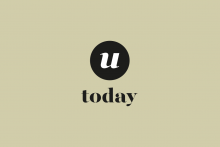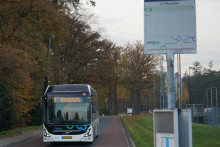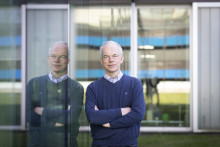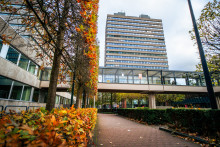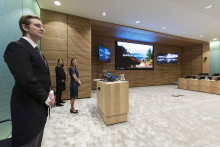The first policy, RAVIS (Graduate Support Regulation for International Students) designates eligibility for a financial aid scheme. The goal of this program is to support students who fall behind in their studies due to unique circumstances, which may include personal crises such as serious illness or death in the family as well as participation in certain university-related activities and organizations. The second policy is the `PC prive' regulation which enables full-time matriculated students to purchase a personal computer for their studies with the help of an interest-free loan.
The policies extend the rights of Dutch students to international students and serve to strengthen and integrate an increasingly intercultural campus. About RAVIS, van der Kolk says: `Integration should be seen as two-way: for international students, more contact with Dutch students and encouragement to join various organizations; for Dutch students, a way to interact more with international students.'
Support for students in personal crises and access to affordable PCs are necessary components of good university policy, but van der Kolk is also excited about the opportunities RAVIS can afford the UT community:
`Being active in a student organization is very common, particularly at the UT, and something we encourage a great deal. It's important to develop skills outside your curricula. Becoming active as a formal board member in a student organization can help develop much needed interpersonal and intercultural skills for your career. The Dutch terms is activisme or bestuurswerk.
`The concept is a major focus of the Student Union. Working as a board member usually takes quite a lot of time, often a full working week. Most students are unable to study during the year or six months they do this. RAVIS enables them to get funding for study delays they may incur as a result.'
There are various ways to find these opportunities, she continues: `Usually student organizations change boards every year or six months and start recruiting new members well before through flyers, posters, friends and acquaintances, lecture talks, internet. The Student Union has an online database which includes posts on student boards and committees (http://www.studentunion.utwente.nl/nl/voorstudenten/vacaturebank.html).' There are many opportunities to participate, ranging from international associations to football clubs. Van der Kolk offers some examples: `Most boards have a president, treasurer, secretary and vice-president. Activities could be drafting organization policy, keeping office hours, drawing up schedules, organizing PR, keeping the budget and minutes, regular board meetings and meetings with other relevant partners, member recruitment or acquisition of funds and organizing activities for members'.
Details about RAVIS, the PC loan and student organizations are on the internet. Refer to the student charter (p.13) http://www.utwente.nl/studentenbalie/en/index.html and `practical information' at www.utwente.nl/en or www.graduate.utwente.nl Booklets and information can be obtained from the red desk in the Bastille, first floor.


